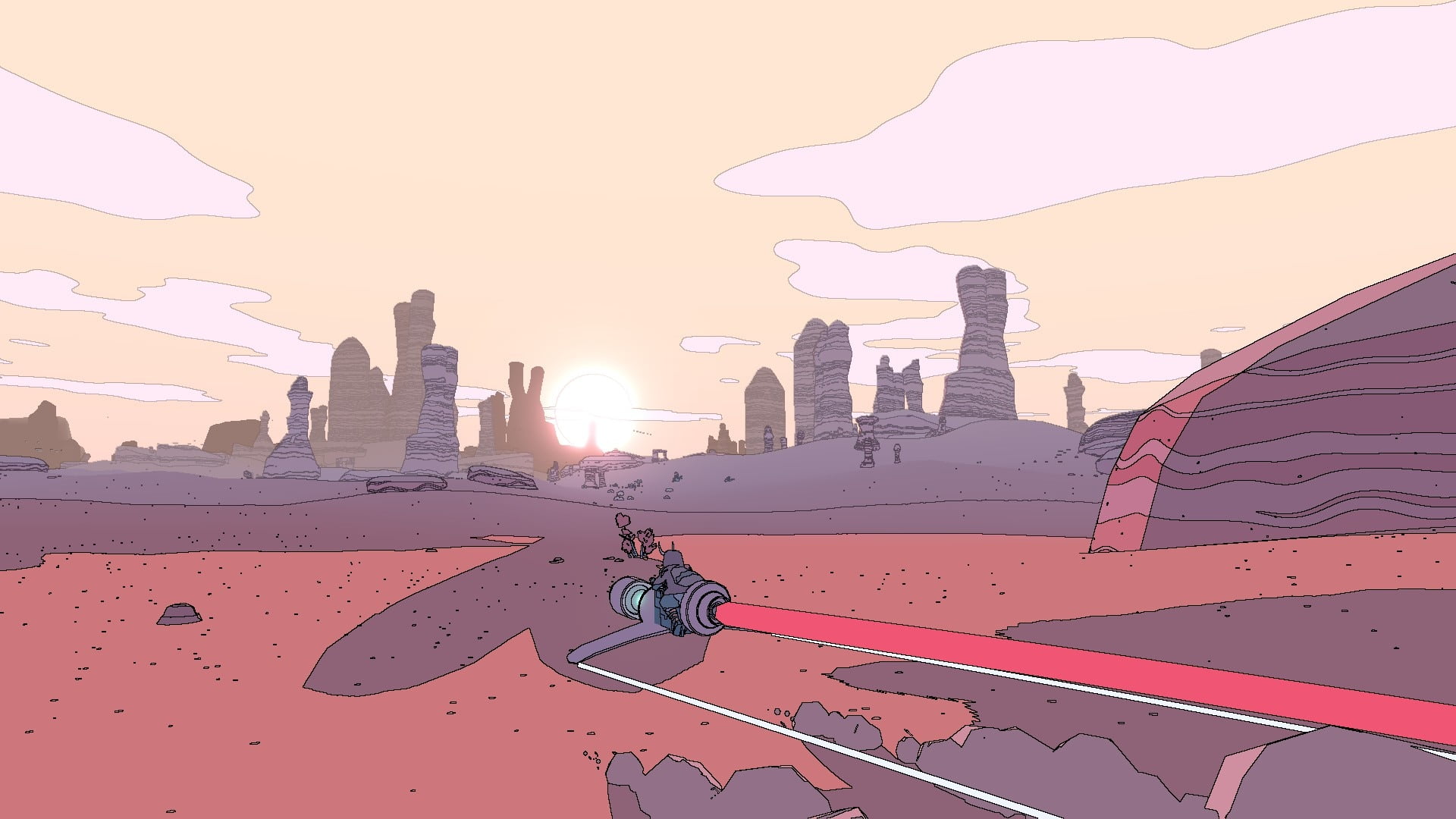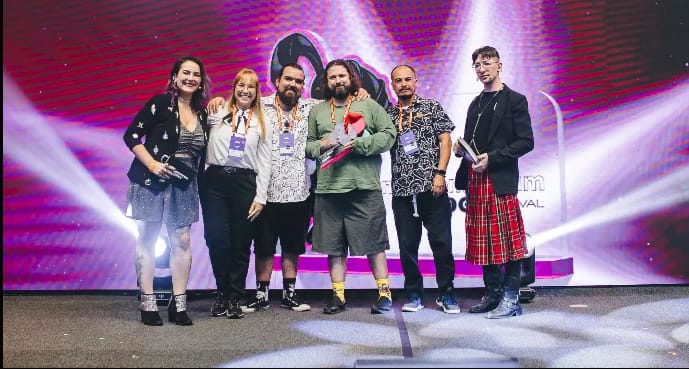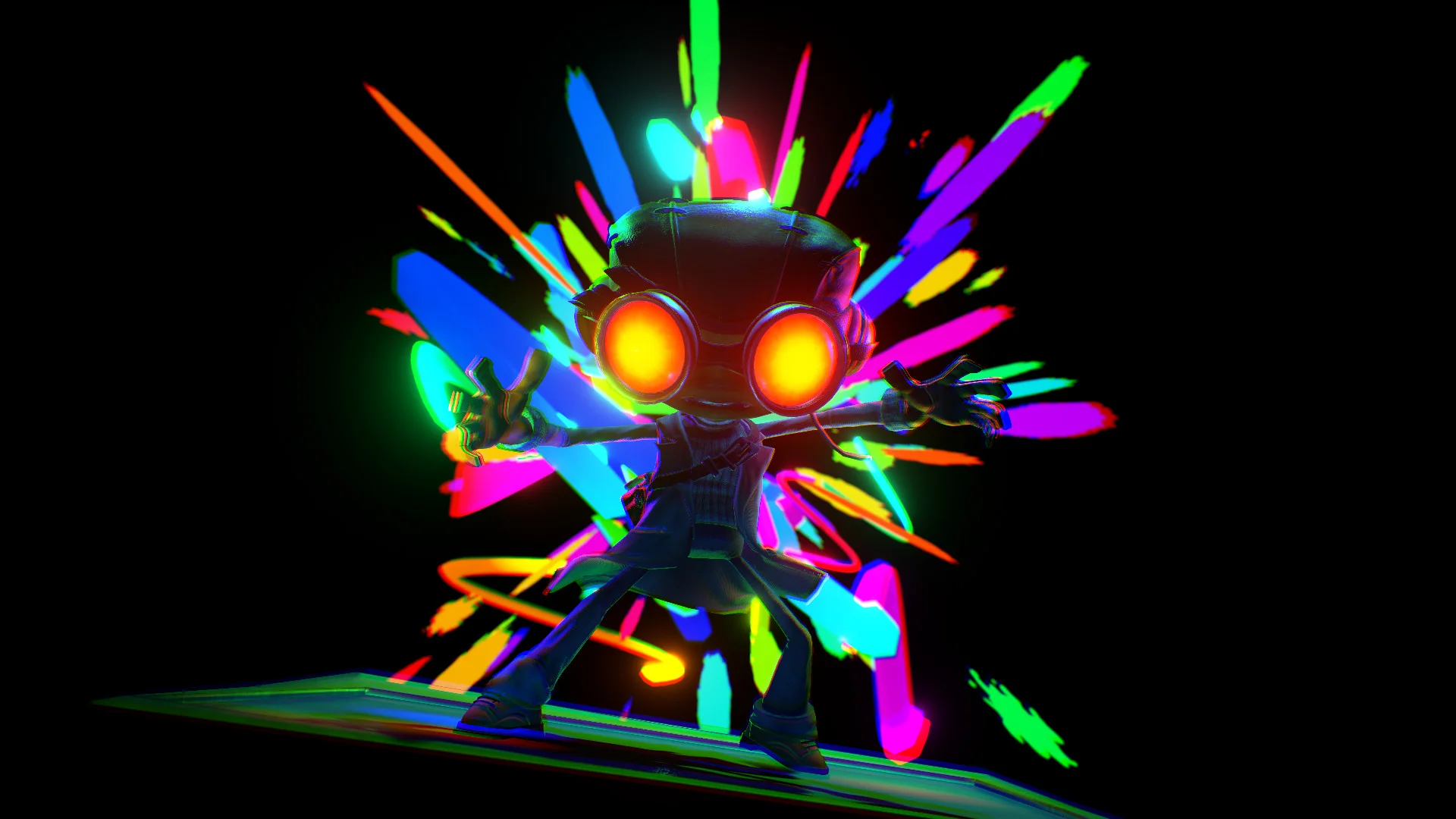So… 2021, huh? Oof.
I’ve been trying to find some way to write this intro without veering into irresponsible doom and gloom territory, but it’s… hard. Difficult to find some kind of positive or hopeful note when the current state of things is so dire. All we can do is keep pressing on and do what we can. May we all make it through this ongoing nightmare. Hopefully 2022 will be at least a little better.
Couldn’t decide how to actually rank these because most of them could easily be my game of the year depending on how I feel on any given day. So here’s a bunch of games that stuck with me this year.

Inscryption
Inscryption is a game I respect more than I actually enjoyed playing. Deck builders are not the sort of game I usually play very often because I’m not good at that sort of thing (Slay the Spire being one of the rare exceptions). I did enjoy it, though — the ways Inscryption is constantly subverting both its mechanics and the player expectations is fun and well executed, the constant twists and turns the story took making for a fun and surreal ride.
I think I had more fun watching Waypoint stream Inscryption than I did playing it myself. I liked the game well enough, but watching Rob and Natalie completely destroy the game again and again, somehow always beating the game’s attempts to halt their progress via seemingly unwinnable situations was incredible. It’s fun to see all the ridiculous ways you can utterly break the game when it’s in the hands of people who know what they’re doing. Stumbling into the more obvious ways to break it was great (undying squirrels too strong), but seeing just how far you can go with it gave me a better appreciation for the card game’s design.

Picross 3D
I’ve been meaning to play Picross 3D for literal years. Tried out a demo for it once and enjoyed it but never actually got around to playing the full game. For whatever reason, I got the sudden urge to play it over the summer and tracked down a copy. And I’m glad I did! Picross 3D rules.
The way every puzzle eventually goes from that feeling of “where do I even begin” to suddenly having everything click was endlessly satisfying. I eventually fell off once I hit the final tier or puzzles (five minutes is not enough time for how hard they get), but the time I spent playing Picross 3D was some of the most fun I’ve had with a puzzle game in a while. Probably gonna end up doing this all over again when I get around to playing the 3DS sequel that I only just recently learned about.
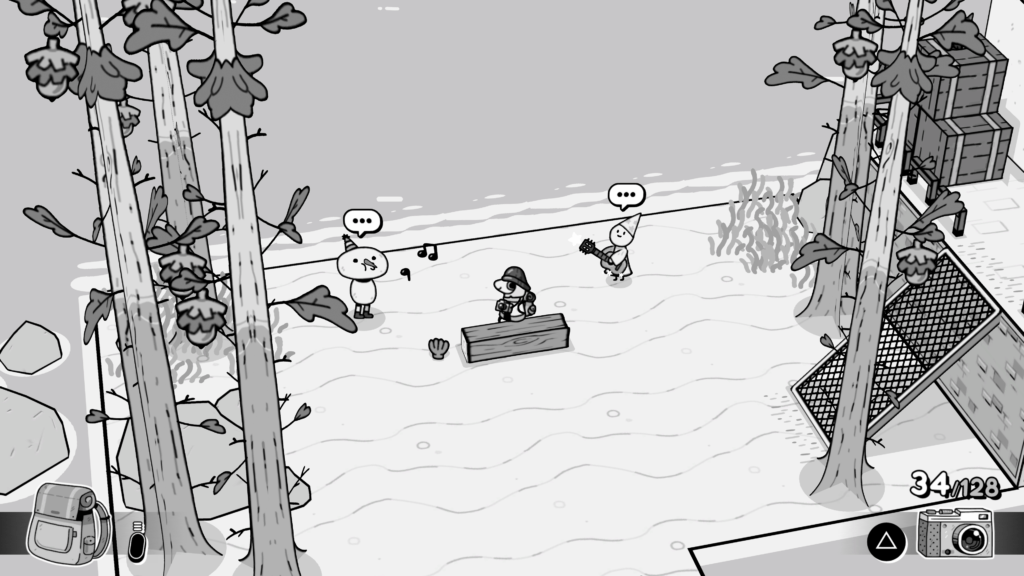
TOEM
TOEM is just… pleasant. It’s an easygoing adventure game where you take pictures and help people along your way to see the titular TOEM. It’s a photography game where the act of taking pictures, outside of what you need to do for the various requests you accept, is more casual; it’s sort of akin to just snapping photos of whatever catches your eye while you’re out and about. It’s not as in-depth as something like Umurangi Generation or any big-budget videogames’ “photo mode” where you can apply all sorts of filters and effects. It’s just the basics: point, zoom, and click. Simple, but playful in its delivery.
Everything and everyone is just so jolly too. It’s a game whose upbeat energy is so infectious that it’s hard not to be taken in by its charm. Every facet of it is just so delightful. I like the way they use what are basically emoji in a few spots. It’s a really cute game. Greatly enjoyed my time with it.

Get in the Car, Loser!
It’s wild to me that this game is free. The folks at Love Conquers All Games really decided to make one of the best RPGs of the year and release it for free. Wild.
Get in the Car, Loser! is great for many reasons. It’s writing is excellent, deftly jumping between lighthearted goofs and banter and being extremely raw and sincere as needed. That’s always a tough balance to strike, but it does so exceptionally. The combat, a riff on the chain and stagger systems of Final Fantasy XIII, provides plenty of variety in terms of how you configure your party’s actions and how they all compliment each other to make some truly strong synergies while still being straightforward and easy to pick up. It’s one of the rare times I felt like I was engaging with the systems on more than a surface level by just doing whatever worked and coasting on that. The game’s sort of operating in the same space as Extreme Meatpunks Forever — insofar as both are explicitly queer and unrelentingly antifascist works, which, you know: always a plus.
Oh, and the soundtrack fucking slaps.

NEO: The World Ends With You
It is incredible that this game exists. The World Ends With You was a phenomenal game, but it also felt like a one-off sort of deal. Which was fine! Not everything needs a sequel or to become a series, but it never felt like something Square Enix ever really tried to promote and never sold spectacularly because of it, so the very idea seemed out of the question entirely.
And then we got a sequel anyway. And it’s great!
NEO: The World Ends With You is pretty much just more The World Ends With You, and, I mean — look: if you’re gonna make another one of these games, that’s kinda what you’d expect. The new cast is great and the story hits the same high notes as the original. The ways NEO iterates and builds on the first game while also still being its own thing is impressive. Translating the novel combat system of the original into something that still evokes the same sort of thematic synergy of the original DS version is no easy task, but NEO does so effortlessly.

Unbeatable [white label]
You ever play a demo so good it ends up being one of the best games of the year? Well, okay — technically this is a separate standalone game than a demo in the traditional sense, but… eh. Semantics.
Unbeatable [white label] is a rhythm game with some of the absolute most style around. It doesn’t convey itself well in screenshots, so just watch the Kickstarter trailer and you’ll see what I mean. It’s also probably one of the games I played the most this year between this and the old “Arcade Mix” demo they released during the Kickstarter phase. It’s been awhile since I last really latched onto a rhythm game like that (Spin Rhythm XD came close; need to revisit that again). Also, the music is good. Even if you don’t actually play it, at least give the music a listen. Just top-notch stuff all around.

The Great Ace Attorney Chronicles
Who’d have thought a courtroom drama would be one of the best things Capcom has going right now.
The Great Ace Attorney Chronicles is easily Ace Attorney at its best. The new setting and cast of characters are fun. The way it plays around with the expectations of how these games are structured and how it all contributes to the larger story is extremely well executed. Ace Attorney’s always had a pretty consistent level of quality, but The Great Ace Attorney Chronicles is constantly surpassing itself.
As absurd as the series is oftentimes (though this one is a bit more grounded insofar as there aren’t any supernatural elements at work), at its core, it’s one that’s very critical of the justice system. The Great Ace Attorney Chronicles feels more pointed than previous entries in part because it’s overarching story deals directly with how those systems can be leveraged for personal and political gain, how easily the truth can be buried and the difficulties of uncovering it when the powers that be will literally do whatever they can to prevent it from coming to light. It’s a larger scale political drama in a lot of ways and succeeds on that front spectacularly.

Solar Ash
Solar Ash is one of those games that immediately feels incredible to move around in. Platformers are generally a genre that excels at making movement feel good and exciting better than any other and Solar Ash is no exception.
Solar Ash easily captures the thrills of moving through complex obstacle courses in a single smooth motion wonderfully. This is best captured in the boss fights wherein the game essentially becomes a more parkour-style take on Shadow of the Colossus as you chase down the massive creatures you’re pitted against and then scramble across their bodies trying to take them down. It becomes a game that demands speed and precision but never feels overly complex or punishing.
The climate change parallels in its story (a giant black hole is slowly consuming every planet in its way and the world governments are too busy debating a potential solution instead of taking action) also got me feeling a certain way given the ways recent years have strongly demonstrated the ways inaction is going to haunt us. It’s story is much more than just a climate change allegory, ultimately ending on a deeply affecting and even hopeful note, which… at this point, I’ll take whatever shreds of hope I can get.

Chicory: A Colorful Tale
On the surface, Chicory: A Colorful Tale is simply a cute game wherein you recolor the world. Sort of like de Blob but with far more control over how the world is colored and with ample room for expression. In reality, it’s a story about impostor syndrome, the struggles inherent to all creative pursuits, burnout, and more. It’s a… surprisingly heavy game.
Chicory handles these subjects carefully, however, speaking with an understanding of these things aren’t something you can solve (a trap that any sort of art can easily fall into) so much as learn to manage. There were multiple moments where the game was vocalizing doubts I’ve had plenty of times over the years. Maybe it’s just because I played it at the right time — I’ve been struggling to do any kind of creative work for most of the year and was going through it — but it really hit home in ways I did not expect it to. Just a lovely, heartfelt experience all around.
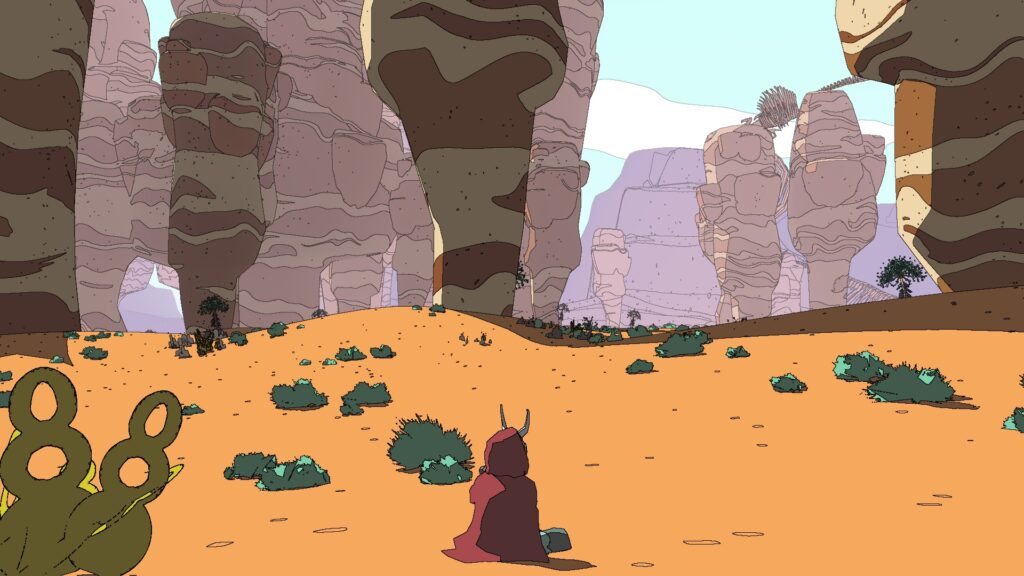
Sable
I could go on and on about how Sable does a lot of what Breath of the Wild did but way better (the sort of boundless exploration it deals in works better when that’s the primary draw of the game) or how its art is incredible (games can look like this!), but it’s the writing that really makes Sable so good. Sable is a story about heading out into the world to figure out your place in it — who you are, what you do, where you belong. Deeply existential questions that haunt us all but that Sable tackles with an earnestness and warmth that’s special and so very human.
There’s tons of great moments throughout Sable, but the one that sticks out most in my mind is one at the start of the game. At the end of the game’s opening area where, after assembling your bike and grabbing the mask for the Gliding, Sable returns to her home village to find it deserted. A voice message left behind states this is tradition — everyone must leave the village before the glider embarks on their journey. It’s a bittersweet moment for Sable as she doesn’t get to properly say farewell to everyone, but she also knows that she probably wouldn’t be able to leave if she was able to say goodbye. It’s a tough moment for everyone — the tone of the voice message is clear that the person speaking is trying to hold back tears — because even though they all know Sable will return eventually, it’s hard to see someone off knowing they’ll be gone for a long while.
And then it’s off into the wider world. The game’s main theme kicks in as you head toward the gate, the sun beginning to set as you begin speeding across the sands to find your way. It’s a strong opening that sets the stage for the game perfectly. And it utterly destroyed me.
I know I said this list was unranked, but I had to choose one to be “game of the year,” it’d be Sable.
Honorable Mentions: Kaiju Noir, Beast Breaker, Boomerang X, NUTS, Unpacking, Psychonauts 2, Death’s Door, Garden Story, Deltarune Chapter 2, and Overboard!.
Games I didn’t get to but seem very cool or interesting that you should check out: Mundaun, Adios, Exo One, Dot’s Home, Unsighted, GB Rober, Webbed, Boyfriend Dungeon, No Longer Home, ElecHead, Of Love and Eternity, Sunlight, Cloud Gardens, Moonglow Bay, Outer Wilds – Echos of the Eye, and Bonfire Peaks.

